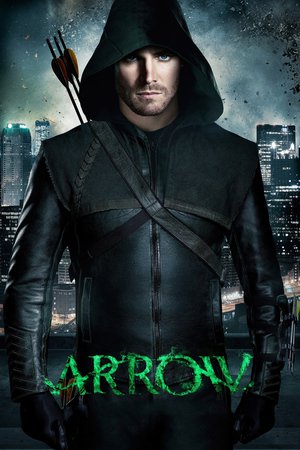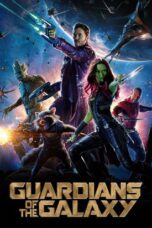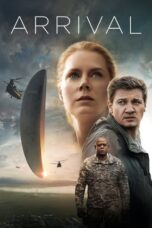Captain America: Civil War is a 2016 superhero film directed by Anthony and Joe Russo, and it is the third installment in the Captain America series within the Marvel Cinematic Universe (MCU). The film brings together a host of familiar MCU characters, but at its core, it revolves around a profound ideological and emotional conflict between two central characters: Steve Rogers (Captain America) and Tony Stark (Iron Man). As the title suggests, the film explores the consequences of internal division, pitting superhero against superhero in a way that challenges viewers to think about the balance between personal freedom and governmental oversight.
Plot Summary
The central conflict of Captain America: Civil War is the Sokovia Accords, an international agreement that seeks to regulate superhero activity after the events of Avengers: Age of Ultron, where widespread destruction left many innocent civilians dead. These accords, backed by the United Nations, would require the Avengers to operate under government supervision. Tony Stark (Robert Downey Jr.) supports the Accords, believing that the team needs accountability and that unchecked power can be dangerous. His position is deeply influenced by his own guilt over the casualties caused during their missions, as well as his personal involvement in Ultron’s creation.
On the opposite side, Steve Rogers (Chris Evans) strongly opposes the Accords. He believes that governments are subject to political agendas and corruption, and that surrendering control to bureaucrats could compromise their ability to act when necessary. His stance is further complicated by his loyalty to his childhood friend, Bucky Barnes (Sebastian Stan), also known as the Winter Soldier, who has been framed for a terrorist attack. The film ultimately divides the Avengers into two factions: Team Iron Man, which believes in oversight, and Team Captain America, which fights for independence.
As tensions rise and the lines between right and wrong blur, the ideological battle escalates into physical confrontation, leading to one of the most memorable and emotional battles in the MCU, at the airport in Germany. The conflict becomes personal, and the consequences of this civil war are felt deeply throughout the MCU.
Themes and Moral Dilemmas
One of the most compelling aspects of Captain America: Civil War is its nuanced exploration of moral dilemmas. Unlike many superhero films that focus on a clear-cut villain, this movie presents a conflict in which both sides have valid arguments. The question at the heart of the film—whether superheroes should be regulated or allowed to operate independently—forces viewers to consider complex issues about freedom, security, and accountability.
Tony Stark’s position is rooted in a desire for responsibility. After the events in Avengers: Age of Ultron, where his creation, Ultron, caused massive destruction, Tony feels personally responsible for the damage the Avengers have caused. His support for the Sokovia Accords reflects his fear that without oversight, superheroes could inadvertently cause more harm than good. Tony’s emotional journey in the film is one of guilt and self-reflection, and Downey Jr. portrays this inner conflict with great depth.
On the other hand, Steve Rogers’ stance is driven by his belief in individual freedom and his mistrust of authority. Steve has witnessed governments fail and become corrupt, most notably in Captain America: The Winter Soldier, where Hydra had infiltrated S.H.I.E.L.D. His argument against the Accords is less about refusing accountability and more about maintaining the autonomy to act when necessary. Steve’s loyalty to Bucky, who was brainwashed by Hydra, further complicates his position, as he believes in his friend’s redemption and doesn’t want him to fall into the wrong hands.
This ideological divide gives the film a depth that sets it apart from traditional superhero films. There is no easy answer, and both Tony and Steve are motivated by a desire to do what they believe is right. The film asks the audience to empathize with both sides, making the final confrontation all the more emotionally charged.
Character Development
One of the standout achievements of Civil War is how it manages to juggle a large ensemble cast while still giving many of its characters moments of significant development. While the primary focus is on Captain America and Iron Man, supporting characters are given the opportunity to shine and further develop their own story arcs.
Bucky Barnes plays a crucial role in the film, as his history as the brainwashed Winter Soldier is central to the conflict between Steve and Tony. Sebastian Stan portrays Bucky as a man haunted by his past actions, and his struggle for redemption is both tragic and compelling. Steve’s unwavering loyalty to Bucky, despite his crimes, adds complexity to Steve’s character, as it forces him to prioritize his personal relationships over the collective good of the Avengers.
Black Panther, introduced in this film and played by Chadwick Boseman, is one of the most compelling new characters in the MCU. T’Challa is driven by a desire for vengeance after his father is killed in the explosion Bucky is framed for. However, his character arc evolves from one of revenge to one of understanding and forgiveness, setting the stage for his solo film. Boseman brings a quiet dignity and power to the role, making Black Panther one of the film’s highlights.
The introduction of Tom Holland’s Spider-Man is another highlight. Peter Parker is portrayed as a young, inexperienced superhero, whose youthful enthusiasm and humor bring a lighter tone to the otherwise intense film. Despite his relatively brief screen time, Holland makes a strong impression, showcasing Spider-Man’s agility and wit while also hinting at the challenges he will face in his own films.
Scarlet Witch (Elizabeth Olsen) and Vision (Paul Bettany) are also given significant development. Their relationship is explored in more depth, with Vision struggling to understand humanity and his own emotions, while Wanda grapples with the destructive potential of her powers. These characters, who were introduced in Age of Ultron, are further developed here, setting the stage for their roles in future MCU films.
Action and Choreography
Captain America: Civil War is not just a film about philosophical debates—it is packed with thrilling action sequences that are meticulously choreographed. The airport battle, which sees the two factions of Avengers facing off, is a standout moment in the film. Each character’s unique abilities are showcased in dynamic and creative ways, and the scene is both exhilarating and emotionally charged. The film strikes a balance between large-scale spectacle and intimate, character-driven moments, making the action sequences feel purposeful rather than gratuitous.
The final battle between Captain America, Iron Man, and Bucky is one of the most emotionally intense scenes in the entire MCU. Unlike the earlier airport fight, which had a sense of fun and camaraderie despite the conflict, this final confrontation is raw and personal. Tony’s discovery that Bucky, while under Hydra’s control, killed his parents adds a deeply personal layer to the fight, making it more than just a battle over ideology. The brutal hand-to-hand combat between Steve and Tony is symbolic of their fractured friendship, and the emotional weight of the scene is palpable.
Visuals and Direction
The Russo brothers bring a grounded, visceral approach to the film’s action scenes, using a combination of practical effects and CGI to create a sense of realism. The film’s color palette is muted compared to earlier MCU films, reflecting the darker tone of the story. The direction is tight, keeping the pace brisk despite the film’s longer runtime, and the decision to use more hand-held camera work during fight scenes enhances the intensity of the action.
Captain America: Civil War stands as one of the best films in the Marvel Cinematic Universe, not only for its thrilling action sequences and spectacular ensemble cast but for its exploration of complex moral and ideological issues. The film delves into the consequences of power, responsibility, and loyalty, presenting both sides of the conflict with nuance and empathy. The rift between Tony Stark and Steve Rogers is not just a plot device but a deeply emotional journey for both characters, and the ramifications of their division echo throughout the subsequent films in the MCU.
By blending personal stakes with larger political questions, Civil War rises above the standard superhero fare, offering a film that is as thought-provoking as it is entertaining. With memorable performances, a well-crafted story, and expertly directed action, Captain America: Civil War remains a defining entry in the superhero genre.






